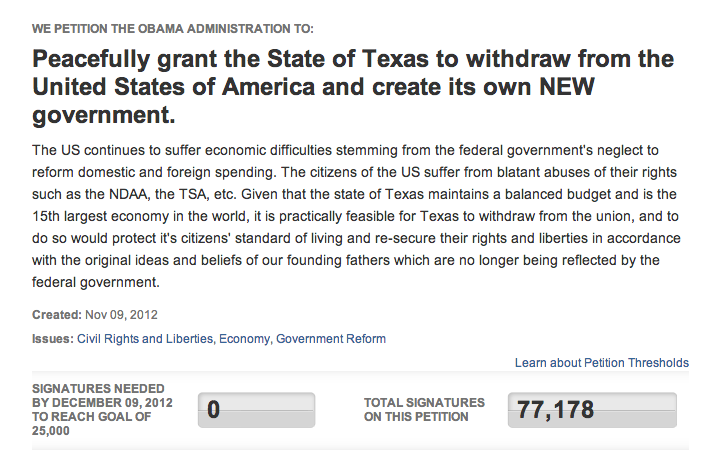After President Barack Obama was reelected last week, several petitions to secede appeared on the White House website. The petition feature of the site promises that “if a petition meets the signature threshold [of 25,000 signatures within 30 days], it will be reviewed by the Administration and we will issue a response.” The Houston Chronicle reports that by 3:40 PM EST, the petition to allow Texas to secede had already accumulated over 25,000 signatures. At the time of this writing, it has over 77,000 signatures.
Petitions on behalf of other states have received less attention and fewer signatures, but several have met or are approaching the 25,000 threshold, as well. Louisiana (29,000), Florida (23,000), Georgia (22,000), Alabama (21,300), Tennessee (20,700), and North Carolina (20,200) have all accrued a substantial number of supporters.
On more than one occasion, Texans (both officials and non-officials) have suggested that their state “has the right” to secede. Texas Governor Rick Perry has disavowed the online movement to secede, despite having previously acknowledged that secession might be an option. In 2009, the state legislature passed a resolution asserting state sovereignty—a resolution Governor Perry supported—although it has no binding effect on the federal government.


 In April 2010, Karen McPeters filed a
In April 2010, Karen McPeters filed a